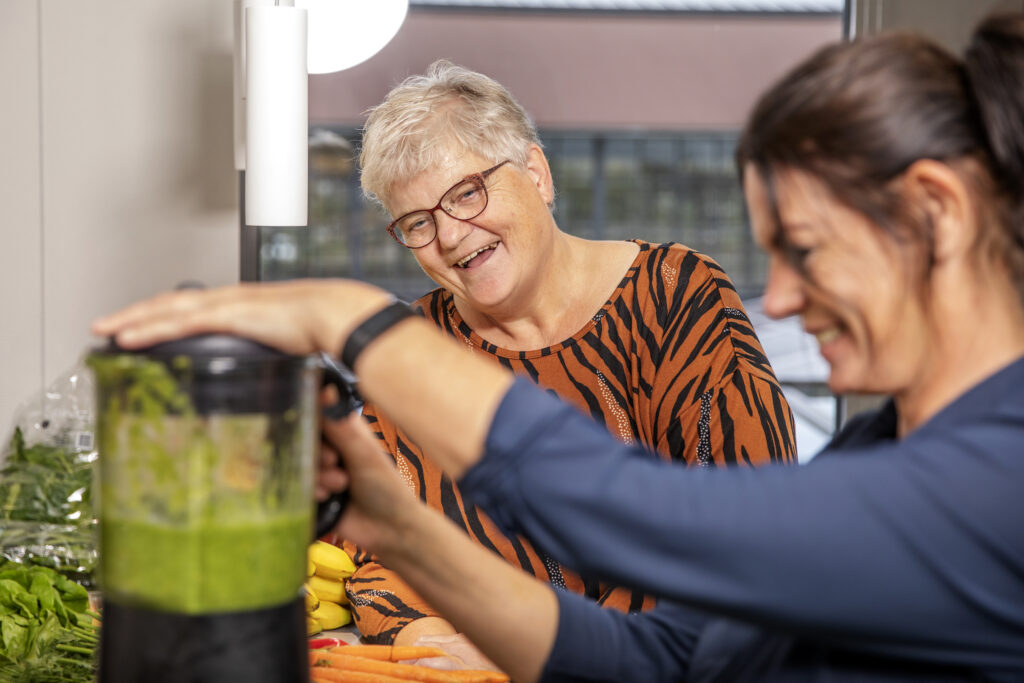Outcome
The movement from ‘From Disease & Care to Health & Behavior’ has been visibly initiated with this PAR: it has yielded 45 directions for solutions, of which currently 24 are being executed in co-creation.
The Veendammers who participated in this PAR have worked individually and in groups on six themes that emerged from the interviews: Supportive network, Nutritious eating, Natural movement, Conscious relaxation, Meaningful living, and Rested awakening. Two weekly theme meetings were organized where ideas and solution directions were collectively discussed, fitting each theme. Subsequently, the participants started experimenting and implementing these ideas at home, to then report on their experiences during the group meeting two weeks later.
Participants have started eating more vegetables, for example by making smoothies, introduced intermittent fasting (16:8 method), started daily walks using the Walking app, stopped consuming alcohol with the help of Ikpas.nl, started cold training sessions at the local swimming lake (Wim Hof method), and applied various mindfulness techniques (e.g., with a walking coach).
One of the participants developed an online 40-day challenge for the members of a Christian community in Veendam. Forty biblical insights were described to achieve a healthy weight. The 24 participants in this challenge received a daily email with an insight they could work on themselves. During this challenge, three physical group meetings were held, focusing on deepening the biblical insights. Participants came up with the idea to conclude these meetings with a biblical lunch, where each participant brought something related to an applied biblical insight. The zucchini brownie and the date chocolate balls will be fondly remembered by the researcher.
After this challenge, the PAR practitioner was informed with the question of whether this challenge could be shared with someone from the Muslim community. The idea is to translate the 40 biblical insights into the Quran. This challenge could then start during Ramadan. An initial exploratory conversation has taken place. To be continued!
After the interviews with the caregivers of the health center, two focus groups were formed. The physiotherapists, together with the dietitians and a psychologist, started offering the Combined Lifestyle Intervention (CLI) to Veendammers with overweight. This program has now been definitively implemented in Veendam.
A second focus group was formed by a general practitioner. He convened various disciplines to set up a care innovation project around the common complaint ‘Chest pain (POB)’. After the first meeting, where caregivers from outside the health center were also present, with the cooperation of all participants, a project plan was drawn up which is currently under review by the health insurer. It is expected that the project can start in 2022. Lifestyle interventions will also become a fixed part of the care for Veendammers with POB complaints. The project plan can be requested from the PAR practitioner, who will further monitor the process.
After the interview with the deputy mayor and her policy officer, they started a focus group with the aim of creating a Local Prevention Agreement (LPA). Various caregivers from Veendam and surrounding areas had an initial online meeting, with the PAR practitioner also present. A formateur has been appointed, and he is working according to PAR principles to collect all ideas and plans from those involved. In a subsequent meeting, the results were shared, and by the spring of 2021, the LPA was ready. Several Veendammers and caregivers have since started implementing it in co-creation.

